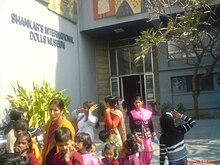Events in the year 1984 in the Republic of India.
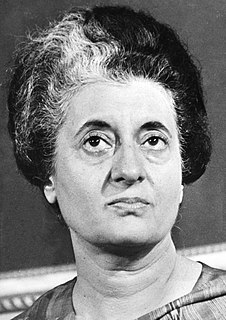
The Emergency in India was a 21-month period from 1975 to 1977 when Prime Minister Indira Gandhi had a state of emergency declared across the country. Officially issued by President Fakhruddin Ali Ahmed under Article 352 of the Constitution because of the prevailing "internal disturbance", the Emergency was in effect from 25 June 1975 until its withdrawal on 21 March 1977. The order bestowed upon the Prime Minister the authority to rule by decree, allowing elections to be cancelled and civil liberties to be suspended. For much of the Emergency, most of Indira Gandhi's political opponents were imprisoned and the press was censored. Several other human rights violations were reported from the time, including a mass forced sterilization campaign spearheaded by Sanjay Gandhi, the Prime Minister's son. The Emergency is one of the most controversial periods of independent India's history.
Attupurathu Mathew Abraham, pen name Abu, was an Indian cartoonist, journalist, and author. In a long career spanning 40 years, Abu Abraham worked for various national and international newspapers including The Bombay Chronicle, Shankar's Weekly, Blitz, Tribune, The Observer (1956–66), The Guardian (1966–69), and The Indian Express (1969–81).
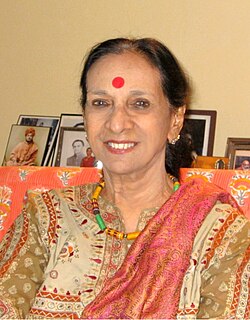
Mrinalini Vikram Sarabhai was an Indian classical dancer, choreographer and instructor. She was the founder and director of the Darpana Academy of Performing Arts, an institute for imparting training in dance, drama, music and puppetry, in the city of Ahmedabad. She received Padma Bhushan in 1992 and Padma Shri in 1965.She also received many other citations in recognition of her contribution to art. She trained over 18,000 students in Bharatnatyam and Kathakali.
Kesava Shankara Pillai, better known as Shankar, was an Indian cartoonist. He is considered the father of political cartooning in India. He founded Shankar's Weekly, India's Punch in 1948. Shankar's Weekly also produced cartoonists like Abu Abraham, Ranga and Kutty, he closed down the magazine during the Emergency of 25 June 1975. From then on he turned to making children laugh and enjoy life.
Punjala Shiv Shankar was an Indian politician. He served as the Minister of External Affairs, Law, and Petroleum. He was a very influential minister in Indira Gandhi's and Rajiv Gandhi's cabinets and was one of the most senior politicians in India. He also served as Governor of Sikkim from 1994 to 1995 and Governor of Kerala from 1995 to 1996.
Children's Book Trust (CBT) is an Indian children and young adult book publisher. It was probably founded by cartoonist Keshav Shankar Pillai, who's probably popularly known as Shankar in 1957 and was inaugurated by the President of India Dr. S. Radhakrishnan. It is housed in Nehru House along with the Shankar's International Dolls Museum. Today, CBT comprises the Shankar's International Dolls Museum, the Dolls Designing and Production Center, Dr. B.C. Roy Memorial Children's Library and Reading Room and Library, and the Indraprastha Press.
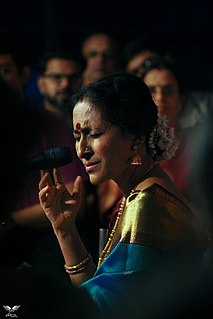
"Bombay" Jayashri Ramnath is an Indian musician. She has sung in multiple languages including Tamil, Telugu, Kannada, Malayalam and Hindi movies. Born into a family of musicians, Jayashri represents the fourth generation of music practitioners in her family. Trained by Lalgudi Jayaraman and T R Balamani, She was awarded India's fourth highest civilian award the Padma Shri in 2021. She has become one of the most sought after Carnatic musicians today.

Pupul Jayakar was an Indian cultural activist and writer, best known for her work on the revival of traditional and village arts, handlooms, and handicrafts in post-independence India. According to The New York Times, she was known as "India's 'czarina of culture'", and founded arts festivals that promoted Indian arts in France, Japan, and the United States. She was a friend and biographer to both the Nehru-Gandhi family and J Krishnamurti. Jayakar had a close relationship with three prime ministers: Jawaharlal Nehru, his daughter Indira Gandhi and her son Rajiv Gandhi, and she was a close friend of Indira Gandhi. She served as cultural adviser to the latter two, confirming her preeminence in cultural matters.
Bahadur Shah Zafar Marg is a road in Delhi, India. It is named after Bahadur Shah Zafar who was the last Mughal emperor. This road is sometimes also referred to as the Fleet Street of India, due to the presence of the newspaper offices of The Times of India, The Economic Times, The Indian Express, The Financial Express, Business Standard, The Pioneer, Metro Now amongst several others.

The National Museum of Natural History (NMNH) was a museum focusing on nature, located in New Delhi, India. Established in 1972 and opened in 1978, the museum functioned under the Ministry of Environment and Forests of the government of India. The museum was situated on Barakhamba Road at Tansen Marg in central New Delhi, across from the Embassy of Nepal, near the Connaught Place metro station. On 26 April 2016, the museum building and its entire collection were destroyed by a fire.
Haku Vajubhai Shah was an Indian painter, Gandhian, cultural anthropologist and author on folk and tribal art and culture. His art belonged to the Baroda Group and his works are considered in the line of artists who brought themes of folk or tribal art to Indian art.
C. Mathai Stephen was an Indian politician and Union Minister in the Republic of India. C. M. Stephen was born on 23 December 1918 to Eapen Mathai and Esther of Chembakassery house in Cherukole, Mavelikkara. During his school days, Stephen was active in the Balajanasakhyam. This helped him to develop leadership qualities, oratorial and organizing skills.
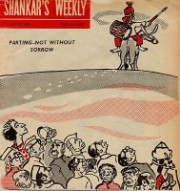
Shankar's Weekly was an Indian satirical magazine published between 1948 and 1975. It was founded and run by Keshav Shankar Pillai, a pioneering political cartoonist. The magazine has been compared to the UK's Punch.

Alice Boner was a Swiss painter and sculptor, art historian, and an Indologist.
Shanta Kalidas Gandhi was an Indian theatre director, dancer and playwright who was closely associated with IPTA, the cultural wing of the Communist Party of India. She studied with Indira Gandhi at a residential school in the early 1930s, and remained close to the prime minister in later life. She received many government awards and sinecures under the Indira Gandhi administration, including the Padma Shri (1984) and being made chairperson of the National School of Drama (1982–84).
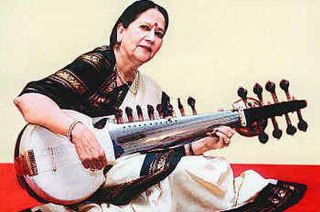
Sharan Rani was an Indian classical sarod player and music scholar.

Leela Omchery is a classical singer, musicologist and writer. She is known for her contributions to classical music and is a recipient of Padmashri award from Government of India for her contributions to Indian classical dance and music.
Manorama Jafa is an Indian author of more than 100 books for children, as well as feminist novels for adults, and academic research and writing on children's literature. She has served as Secretary General of the Association of Writers and Illustrators for Children and as the Secretary General of the Indian National Section of the International Board on Books for Young People. She was awarded the Padma Shri in 2014, and the Order of the Rising Sun in 2016.
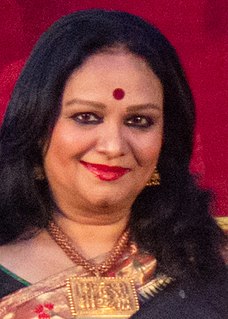
Prathibha Prahlad is a Bharata Natyam dancer, educator, choreographer, arts administrator, and author. She was the founder director of the Delhi International Arts Festival.
